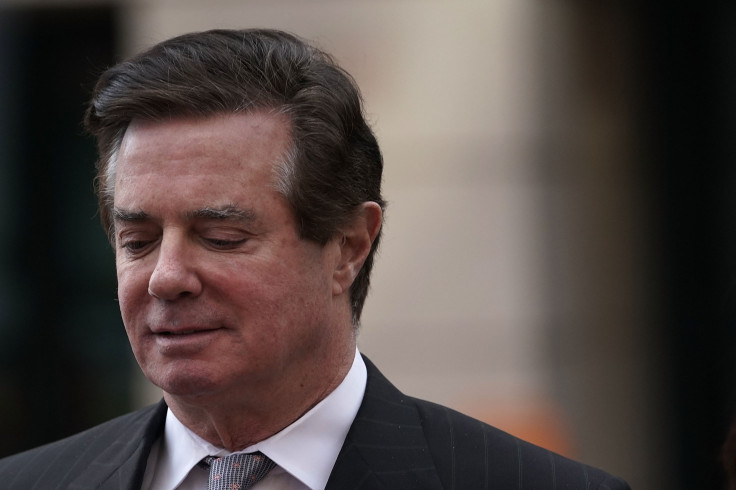Paul Manafort Pardon: President Trump Considering It Despite Republicans Calling It 'Mistake'

Fox News host Ainsley Earhardt told anchor Sean Hannity on Wednesday that President Donald Trump was considering a presidential pardon to his former aide Paul Manafort, although he hadn't come to a decision yet.
Earhardt sat down with Trump for an exclusive interview to be aired on Thursday, and based on the conversation, she confirmed what many had been wondering ever since Trump tweeted lauding Manafort’s bravery:
Upon being asked by Hannity whether Trump mentioned anything during the interview about granting Manafort a pardon, Earhardt said, “He did. He said he considered that. He feels I think — I think he feels bad for Manafort. They were friends, he didn’t work for him for very long. Worked for him for basically 100 days. The president didn’t know about all of this tax stuff. He wouldn’t know about that.”
Manafort joined Trump's presidential campaign team in March 2016. He served as his campaign chairman from June to August of the same year.
After four days of deliberation, a jury found Manafort guilty Tuesday on five counts of tax fraud, two counts of bank fraud and one count of failing to file foreign bank account reports - charges which mean a maximum prison sentence of 80 years, CNN reported.
If the president does end up pardoning Manafort, it would be against the will of his own party members, many of whom have publicly spoken out against such a move.
“It would be an enormous mistake and misuse of his power to pardon,” Sen. Susan Collins (R-Maine) told reporters on Wednesday, the Hill reported. Similarly, Rep. Chris Stewart (R-Utah) told CNN that pardoning Manafort would be a “terrible mistake.”
Senate Republican Conference Chairman John Thune said he did not feel Manafort’s case warranted a pardon from the president.
“Pardons should be used sparingly and you have to have some awfully compelling circumstances I would think and I certainly don’t know what those are in this case,” he said. “Pardons need to be earned.”
Thune’s statement, while it may have some standing when it comes to the moral high ground, does not have any legal justification. This is because the power of a presidential pardon was realized in the Supreme Court decision in the “Ex parte Garland” case in 1866, when former Confederate Sen. Augustus Hill Garland challenged a law passed by Congress disbarring former members of the Confederate government.
President Andrew Johnson had pardoned Garland, which made the latter argue that it should save him from getting disbarred.
“By the second section of the second article of the Constitution, power is given to the President ‘to grant reprieves and pardons for offences against the United States, except in cases of impeachment,’” former Justice Stephen Field wrote at the time. “With that exception the power is unlimited. It extends to every offence, and is intended to relieve the party who may have committed it or who may be charged with its commission, from all the punishments of every description that the law, at the time of the pardon, imposes.”
However, just because Trump was free to pardon Manafort “for all offenses against the United States … [they] committed or may have committed or taken part in,” it did not mean that he could not face legal repercussions for his decision.
“While the pardon power is quite broad under the Constitution, that does not mean that exercises of the pardon power — or promises to grant pardons — cannot be obstructive,” Lisa Kern Griffin, a professor at Duke University School of Law told Vox. “Like any other lawful act, such as terminating executive branch employees, a pardon could be unlawful if done with the corrupt intent to impede an investigation or influence a witness.”
© Copyright IBTimes 2025. All rights reserved.






















